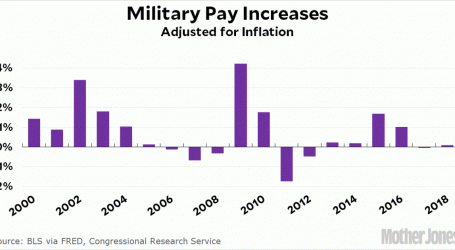Republicans Are Standing by Their Man
Republicans today are more likely to be sympathetic to Trump regarding his involvement in the Jan. 6, 2021, attack on the US Capitol, compared to the week after the insurrection, a new poll found.Amanda Sabga/EFE via ZUMA
Fight disinformation: Sign up for the free Mother Jones Daily newsletter and follow the news that matters.Republicans are standing with Donald Trump in record numbers—and a majority consider him to be a “person of faith,” according to two polls that dropped this week.
Republicans today are more likely to be sympathetic to Trump regarding his involvement in the January 6, 2021, attack on the US Capitol, compared to the week after the insurrection, a Washington Post-University of Maryland poll found. Fourteen percent of GOP-identified respondents said last month that Trump bears a great or good amount of responsibility for the deadly insurrection, compared to 27 percent who said the same nearly three years ago. Only 18 percent of Republicans in that survey said the insurrection was “mostly violent,” compared to 26 percent who said so in 2021. (As a reminder, the insurrection led to injuries to approximately 140 police officers.)
The Washington Post reports that, in follow-up interviews, some participants said their views changed over the past couple years—because they’ve grown to believe the conspiracy theory that January 6 was an inside job. (GOP presidential candidate and businessman Vivek Ramaswamy has espoused this theory during his campaign and did so again today in response to the Post story.)
Additionally, only 31 percent of Republicans surveyed said they believed President Biden was legitimately elected in 2020, compared to 39 percent in 2021; overall, the poll found, 36 percent of Americans don’t accept Biden’s presidency as legitimate.
“From a historical perspective, these results would be chilling to many analysts,” Michael J. Hanmer, director of the Center for Democracy and Civic Engagement at the University of Maryland, told the Post. But the results also provide some insight into why polling continues to show Trump as the likely GOP presidential nominee; that is, his role in the insurrection isn’t hurting him. Among his base, it appears to be helping cement his image as a martyr unfairly targeted by the DC establishment.
Also jarring are the results of a Deseret News/HarrisX poll that found that 64 percent of Republicans consider Trump a “person of faith.” That number has actually increased since October; back then, it was 53 percent of Republicans who said Trump was a “person of faith.” Interestingly, the more recent poll found that a smaller proportion of Republicans—47 percent—characterized Trump as “religious” compared to those who characterized him as a “person of faith.” (As Deseret News reports, Trump was raised Presbyterian and now identifies as a nondenominational Christian.)
The majority of people who called Trump a person or faith, or religious, said they believed it because he “defends people of faith in the US, “supports policies focused on families,” and “cares about people like me.” (The least common reason, cited by only 26 percent of respondents, is that Trump is “actively involved in religious and faith communities.”) As Deseret News points out, Trump has certainly tried to align himself with Evangelicals, a key voting bloc for Republicans. At a June gala hosted by the Faith and Freedom Coalition, a conservative political advocacy organization, Trump claimed that “no president has ever fought for Christians as hard as I have.”
Credit where credit is due: Trump did appoint three Supreme Court justices—Neil Gorsuch, Brett Kavanaugh, and Amy Coney Barrett—who were instrumental in overturning the constitutional right to abortion, which was, as the New York Times put it, a “spiritual victory” for conservative Christians. But former aides have said they’ve heard Trump mock religious leaders, people, and customs.
Whether Trump is truly a “person of faith” seems unlikely to be resolved anytime soon. One thing many of us seem to agree on: 70 percent of Americans don’t think Trump will accept the results of this year’s election should he lose, the Post found.





